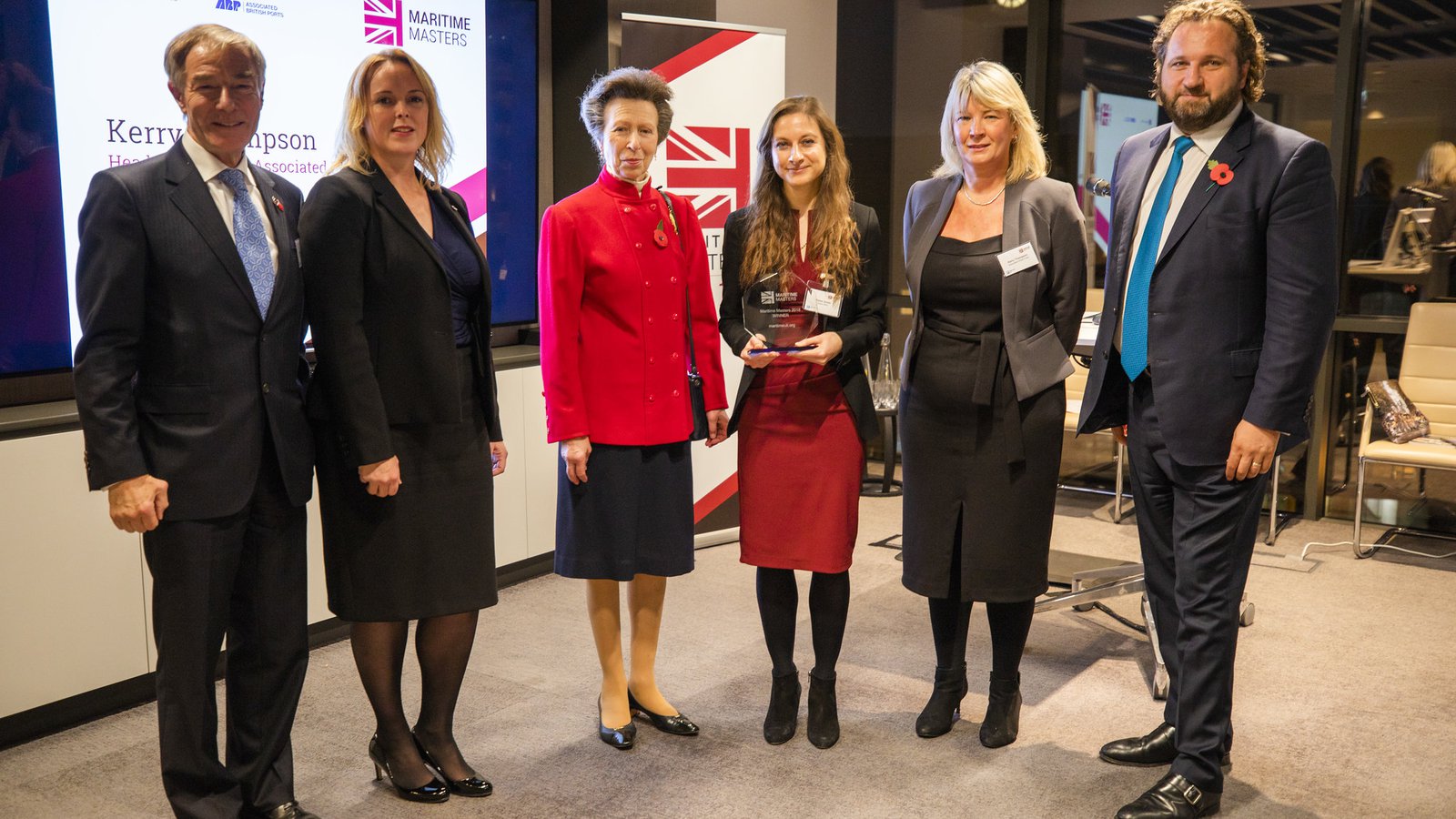News: 2019 Maritime Masters finalists announced

- HRH The Princess Royal to attend Finalist Reception
- 2019 topics include: climate change, autonomy, waste treatment, aerodynamics, ship recycling, cyber security, decarbonisation and bunkering
Maritime UK has
today (9 October) announced the student finalist from each of the nine
participating universities ahead of the 2019 Maritime Masters
Finalist Reception at Clarksons Platou, which will be attended by Maritime UK
Patron, HRH The Princess Royal.
The Maritime
Masters programme aims to encourage engagement and strengthen ties between the
UK’s maritime industries and academia, whilst developing a pool of world-class
maritime talent benefitting from working closely
with UK industry during their studies. The programme promotes academic
excellence among students and provides valuable research to support the work of
the UK maritime sector.
From amongst 27
participating students, nine finalists have now been chosen, one to represent
each of the participating universities. The students will present their
research to an industry audience at the 2019 Maritime Masters Finalist
Reception hosted by Clarksons Platou on 24 October. One student will be voted
the winner in the presence of HRH The Princess Royal, who supported and attended the inaugural finalist reception in 2018.
This year’s
finalists will be presenting research from a wide variety of disciplines,
ranging from topics such as environmental regulations, autonomous shipping,
ship recycling, cyber security, waste treatment and port management. The range
of topics demonstrates the number of pressing issues being faced by the
industry as it looks to major transformation, including digitisation,
decarbonisation and automation.
Ben Murray, Director of Maritime UK, said:
“Collaboration within the maritime sector is increasing all the time. Maritime 2050, launched in January sets a route map for government and industry to collaborate to secure Britain’s position as a maritime nation to 2050. The relationship between industry and academia is critical to our success. That’s why Maritime Masters is so important. We’re already starting to see the product of that closer relationship, with the establishment of the UK’s national centre for maritime research and innovation, MarRI-UK.”
“Maritime Masters also reminds us that the UK really is the world’s leader in maritime education and training. This is a key part of our export offer.”
Clarksons, Maritime Masters event sponsor, will once again be hosting the finalist reception. Their L&D Advisor, Dr Malcolm Willingale said:
“Building on the success of the inaugural event in 2018, Clarksons is delighted to host the 2019 Maritime Masters finalist’s reception. The standards of research work presented by last year’s finalists was impressive and we look forward to a keenly contested competition in October.”
Alongside Clarksons, ABP and Royal HaskoningDHV are sponsoring this year’s programme. Kerry Thompson, Head of ABP Academy, said:
“ABP is delighted to be working with Maritime UK to support Maritime Masters 2019. The programme is a great example of how collaboration between industry and leading academic institutions is helping the next generation of maritime professionals in producing valuable research on wide range of important topics.”
Nicola Clay, Director for Smart Ports at Royal HaskoningDHV, added:
“We are delighted to be playing a role in building greater links between industry and academia through our sponsorship of Maritime UK’s Maritime Masters programme. Our engineers and consultants are looking forward to supporting the shortlisted students by sharing our knowledge on the challenges the maritime industry is facing and helping to shape targeted research around those topics.”
Many of the participating universities have joined the new Maritime Research and Innovation UK initiative, to coordinate UK maritime innovation efforts within a collaborative national body. MarRI-UK, officially launched during London International Shipping Week, has identified digitisation, decarbonisation and automation as their initial areas of focus. Two funding calls, worth £2m have already been launched. Other founding members, who will work collaborative on innovation challenges include Babcock, BAE Systems, BMT, Lloyd’s Register, QinetiQ and Shell.
All 27 student participants had the opportunity to present their research to a global industry audience during London International Shipping Week, where Maritime UK organised an education session at the Global Trade Hub.
This year’ Maritime Masters programme has been sponsored by Clarksons Platou, Royal HaskoningDHV and ABP.
The finalists, including a number that have been supported by companies throughout their research:
Tis year’s student finalists are:
- University of Cardiff – Jack Lockett: ‘Utilising a multifaceted stakeholder approach to assess the international maritime organisation’s target of halving vessel greenhouse gas emissions by 2050’
- Cass Business School – Maria Ceballos-Espinosa: ‘Mitigation and adaptability of ports to climate change’
- Liverpool John Moores University – Kumaran Kathiresan: ‘What commercial or operational triggers can be used to persuade port authorities around the world to follow Singapore’s lead in mandating the use of mass flow meters for all fuel and distillate bunker deliveries?’
- Newcastle University – Ben Richardson: ‘How might the introduction of unmanned autonomous ships affect shipping accident statistics?’
- Queen Mary, University of London – Rachel Genovese: ‘A critical assessment of the regulation of the recycling of ships within the European Union and the commercial and environmental implications’
- University of Plymouth – Georgios Koligianni: ‘Maritime Cybersecurity: a critical analysis of the maritime cyber security’
- University of Strathclyde – Jordan Curtis: ‘An investigation into the Aerodynamics of a Wingmast and its subsequent effects on sail performance’
- University College London – Ernest Young: ‘Waste treatment facility design at sea’
